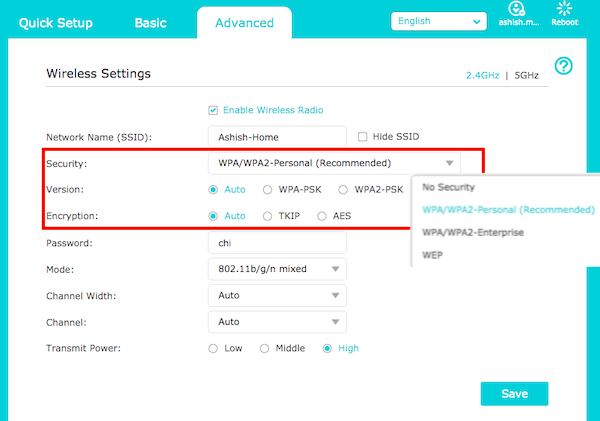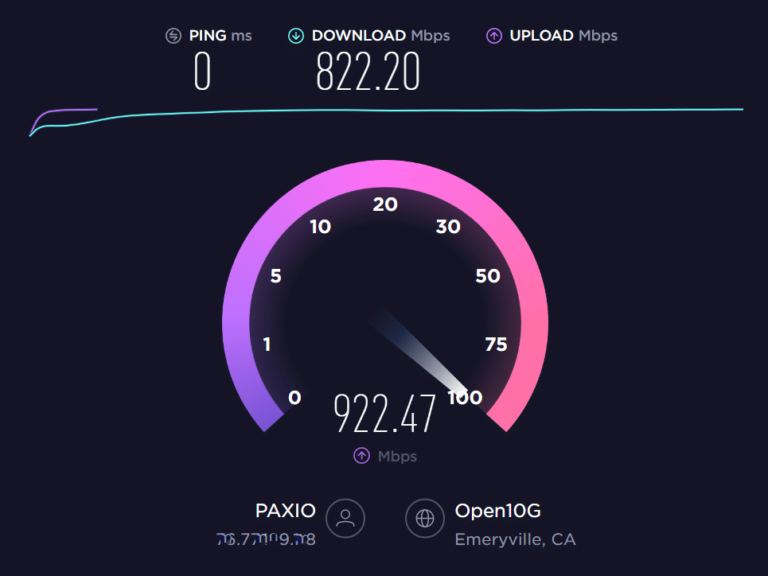Why Is My Home Wifi Not Secure?
Having an unsecured home WiFi network can make your home vulnerable to cyber security threats. As people are increasingly using their personal and professional devices to access the internet, it is important to make sure that your home WiFi network is secure. Unsecured networks allow individuals and hackers to access your sensitive information and data, which can lead to identity theft and financial loss. Fortunately, there are steps you can take to ensure your home WiFi is secure.
What is a Secure Home Wifi Network?
Having a secure home wifi network is essential to protect your data and personal information from cybercriminals. Home wifi is vulnerable to hacking if the network has not been properly secured. A secure home wifi network is one that is adequately protected with strong passwords, encryption, and other security features. By taking the necessary steps to secure your home wifi, you can greatly reduce the risk of someone accessing your private information.
To start, make sure your router is using the latest version of the firmware. Using an outdated firmware may mean that your router is not equipped with the latest security features. Additionally, it is important to change the default username and password of your router. This will help keep malicious actors from accessing your router settings and exploiting your home network.
On top of that, use a strong password for your wifi network. Make sure that it is not easy to guess and that it is a combination of uppercase and lowercase letters, numbers, and special characters. Additionally, consider enabling WPA2 encryption, which is the most secure encryption available for home networks. This will help protect your data from being accessed by unauthorized users.
By taking the necessary steps to secure your home wifi, you can protect your data from potential cyber threats. It is important to remember that security is a continual process, so make sure to regularly update your passwords and keep your firmware up to date. Protecting your home wifi is a very important part of keeping your data safe.
Potential Causes of Unsecure Home Wifi Networks
Having an unsecure home Wifi network can be a major headache for any homeowner. From identity theft and data breaches to hackers taking control of your devices, the risks associated with an unsecured network are numerous and potentially costly. But why is your home Wifi network not secure? Fortunately, there are several potential causes of an unsecure home Wifi network that can be identified and addressed in order to ensure that your network is secure and your data is protected.
The most common cause of an unsecure home Wifi network is a weak password. Your Wifi password should contain a combination of letters, numbers, and symbols in order to provide sufficient protection. If your password is too simple or easily guessed, hackers can easily access your network. Additionally, be sure to update your password regularly to ensure that it remains secure.
Another potential cause of an unsecure home Wifi network is an outdated router. Outdated routers may not have the latest security protocols, leaving your network vulnerable to attack. In order to ensure that your network is secure, be sure to update your router regularly and check for any security patches or updates.
Finally, your home Wifi network may not be secure if you are not taking proper precautions to protect your devices. Be sure to enable two-factor authentication on all of your devices and make sure to always use strong passwords. Additionally, avoid using public Wifi networks as these are often unsecure and can leave you vulnerable to attack.
By understanding the potential causes of an unsecure home Wifi network and taking the necessary steps to protect your network and devices, you can ensure that your data remains secure and your network remains safe.
Tips for Improving Home Wifi Security
The internet is an essential part of our lives and it has become increasingly important for us to secure our home wifi networks. Unfortunately, many people have weak wifi security, leaving them vulnerable to cyber-attacks. This is why it’s important to understand how to make sure your home wifi is secure. Here are some tips for improving your home wifi security:
1. Use a strong password – When setting up your home wifi network, make sure to use a strong password that is difficult to guess. Avoid using common words or phrases, and use a combination of letters, numbers, and special characters.
2. Enable encryption – Use a network encryption protocol such as WPA2 to ensure that your data is safe and secure.
3. Secure your router – Make sure to update your router’s firmware regularly and secure your router’s administrative settings with a unique username and password.
4. Use a VPN – Use a Virtual Private Network (VPN) to hide your IP address and encrypt your web traffic.
5. Monitor your network – Keep an eye on your network activity to spot any suspicious activity.
By following these simple steps, you can ensure that your home wifi is secure and protected from cyber threats. Always remember to keep your passwords, encryption protocols, and router settings up to date to ensure optimal security.

Best Practices for Securing Home Wifi Networks
In today’s digital world, having a secure home wifi network is essential. With more and more devices connecting to the internet, it’s important to ensure that all of your personal data is safe and secure. Unfortunately, many home wifi networks are not secure, leaving them vulnerable to unwanted intrusions. So, what can you do to make sure your home wifi network is secure? Here are some best practices for keeping your home wifi secure.
The first step is to set up a strong password. Make sure your password is complex, with a combination of upper and lower case letters, numbers, and special characters. Additionally, make sure you are not using any default passwords that may have been set by your internet service provider.
Next, make sure your home wifi has a strong encryption method. WPA2 is the most secure type of encryption, and it’s what most routers come with. Ensure that your router is using WPA2, and if it isn’t, contact your internet service provider and upgrade your router.
Another important step is to limit the number of devices that can connect to your network. If you have a guest network, you can limit the number of devices that can connect to it. This will help keep your main network secure.
Finally, make sure you are regularly updating your router’s software. Check for updates regularly, as this will help ensure your security settings are up-to-date.
By following these best practices, you can make sure your home wifi is secure and protected from unwanted intrusions. While it may take some time to get everything set up, it’s worth it in the end to ensure your data is safe and secure.
Benefits of a Secure Home Wifi Network
When it comes to home wifi networks, security should always be a top priority. Without a secure home wifi network, your personal data, devices, and network are vulnerable to malicious attacks, hackers, and other online threats. Keeping your home wifi secure can help ensure the safety of your data and devices, while also providing a better, more reliable home network experience.
A secure home wifi network provides a number of benefits. For starters, it helps to protect your personal information, such as passwords, usernames, and credit card numbers. It also helps to protect your devices, such as computers, tablets, and smartphones, from malicious attacks. Additionally, a secure home wifi network ensures that your network is not vulnerable to hackers, malware, and other online threats.
Moreover, a secure home wifi network provides a more reliable connection, as it is able to provide a higher level of protection against interference, connection drops, and other issues. This helps to ensure that your devices are able to stay connected and get the best performance.
Overall, a secure home wifi network is essential in today’s digital world. It helps to protect your personal data and devices, while also providing a more reliable connection and better home network experience. Investing in a secure home wifi network is the best way to ensure the safety and security of your devices and network.
Common Mistakes to Avoid When Securing Home Wifi Networks
Home wifi networks are becoming increasingly important in today’s connected world. Securing these networks is essential to safeguard your private data and protect your family from malicious cybercriminals. Unfortunately, many homeowners do not take the necessary steps to ensure their home wifi is as secure as possible. To help you avoid some of the most common mistakes, here are a few tips for making sure your home wifi is secure.
First, make sure your router has the latest firmware and security updates. Outdated firmware can leave your network vulnerable to hackers. Additionally, consider changing the default password to a strong, unique combination that is difficult for attackers to guess. This will prevent unauthorised access to your router.
Second, you should enable WPA2 encryption. This is the highest level of encryption and should always be used to protect your home wifi network. If you are using an older router, you may need to upgrade in order to use WPA2.
Third, consider using a VPN. A VPN service will encrypt your data and make it much more difficult for hackers to access your network. Additionally, you should consider setting up a guest network. This will allow visitors to access the internet without having access to your private network.
Finally, it is important to keep your devices and software up to date. This will ensure that any vulnerabilities that may exist on your network are patched before they can be exploited by malicious actors.
By following these tips, you can help ensure that your home wifi network is as secure as possible. Taking the time to properly secure your network will help protect you and your family from cyber threats.
FAQs About the Why Is My Home Wifi Not Secure?
1. How do I know if my home wifi is not secure?
Answer: You can check for potential security risks by logging into your home router settings and reviewing the security settings. Look for options such as WEP or WPA security protocols. If these settings are not enabled, your wifi is not secure.
2. What can happen if my home wifi is not secure?
Answer: If your wifi is not secure, your data can be exposed to potential cyber attackers. Unsecured wifi networks can be used for activities such as stealing your personal information, introducing malware to your devices, or even accessing your home network.
3. How can I make sure my home wifi is secure?
Answer: To make sure your home wifi is secure, you should enable the highest security settings available on your router. This can usually be done by logging into your router settings and enabling WPA2 encryption. Additionally, you should use a strong password that is unique and not shared with anyone else.
Conclusion
Overall, it is important to ensure your home WiFi is secure. There are several steps you can take to ensure your home WiFi is secure, including changing your default WiFi password, enabling the strongest encryption available, and regularly updating your router software. Taking these steps can help protect your home network from potential cyber threats.




